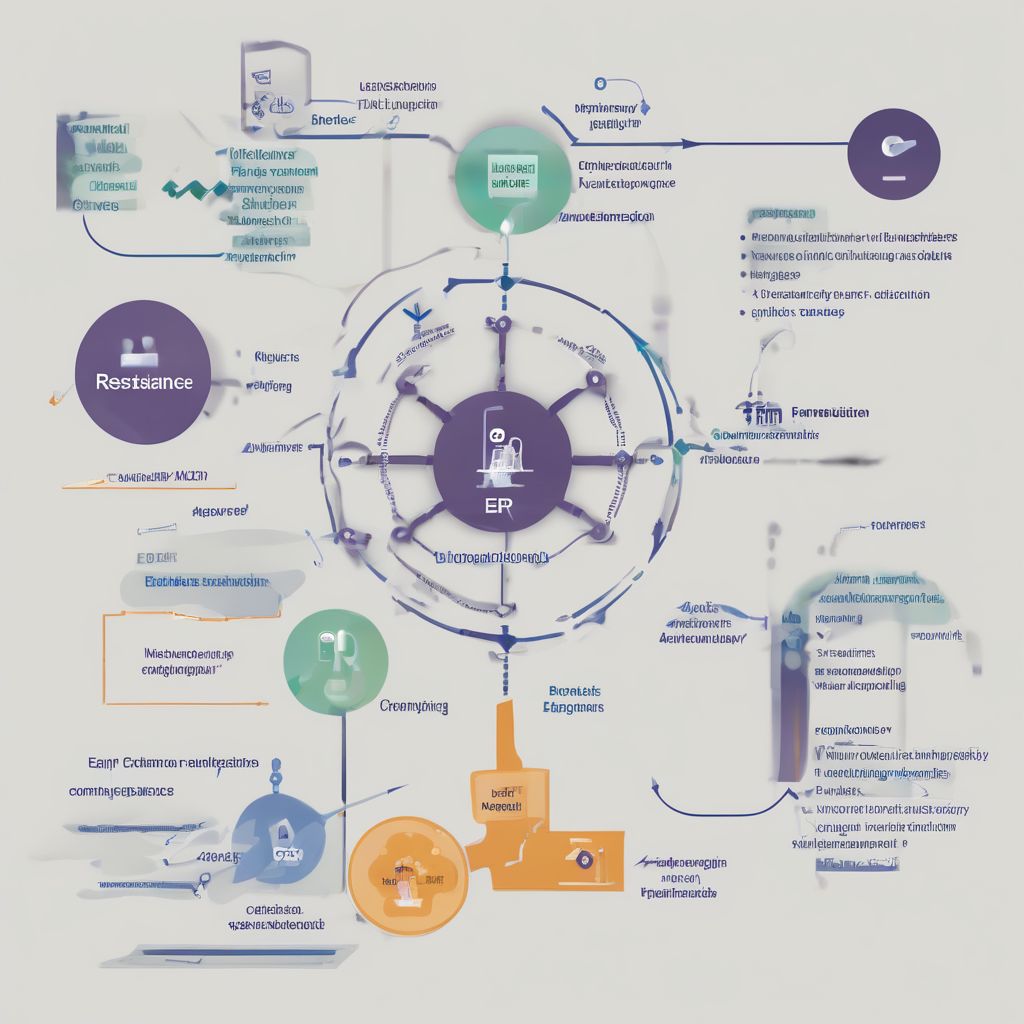ERP implementation is more than just a software installation; it’s a transformative journey that impacts every corner of your business. This guide delves into the complexities of ERP implementation, equipping you with the knowledge to navigate this intricate process successfully.
What is ERP Implementation?
ERP implementation refers to the structured process of integrating an Enterprise Resource Planning (ERP) system into an organization’s existing business processes, data flows, and IT infrastructure. This involves a series of crucial steps:
- Planning & Requirements Gathering: Defining project scope, assembling a team, and outlining specific business needs.
- Software Selection: Evaluating and choosing the right ERP software that aligns with the organization’s industry, size, and growth goals.
- System Design & Configuration: Customizing the ERP software to mirror the company’s unique workflows and data structures.
- Data Migration: Transferring existing business data from legacy systems to the new ERP database, ensuring accuracy and completeness.
- Testing & Training: Thoroughly testing the configured system and providing comprehensive training to end-users for a smooth transition.
- Go-Live & Support: Launching the ERP system and providing ongoing support to address any post-implementation issues or user queries.
The Importance of a Successful ERP Implementation
A well-executed ERP implementation can significantly benefit businesses of all sizes. Here’s why:
- Streamlined Operations: Automating and integrating core business functions, eliminating data silos, and optimizing workflows.
- Enhanced Collaboration: Providing a centralized platform for real-time data sharing and communication across departments.
- Improved Decision-Making: Enabling data-driven insights and analytics for better forecasting, planning, and strategic decisions.
- Increased Productivity: Reducing manual tasks, minimizing errors, and empowering employees with efficient tools.
- Boosted Customer Satisfaction: Optimizing order-to-cash cycles, improving customer service, and enhancing overall customer experiences.
 ERP Implementation Challenges
ERP Implementation Challenges
Common Questions about ERP Implementation
1. What are the biggest challenges in ERP implementation?
Navigating resistance to change, managing data migration complexities, ensuring seamless integration with existing systems, and adhering to budget and timeline constraints are some of the biggest hurdles.
2. How long does an ERP implementation typically take?
The implementation timeline varies depending on factors like company size, project complexity, resources allocated, and the chosen ERP solution. Typically, it can range from a few months to over a year.
3. How can I choose the right ERP system for my business?
Thorough research, understanding your specific business requirements, comparing different vendors, and seeking expert advice are crucial for selecting the most suitable ERP system.
4. What are the key factors for a successful ERP implementation?
Clear communication, strong project management, executive sponsorship, a dedicated implementation team, and comprehensive user training are essential for success.
5. What are the different types of ERP implementation approaches?
Common approaches include Big Bang (all modules implemented at once), Phased (gradual rollout in phases), and Parallel (running old and new systems simultaneously).
Beyond the Basics: Leveraging ERP for Growth
The true power of ERP lies not just in its implementation but in its ongoing optimization and alignment with evolving business goals. Regularly reviewing system performance, gathering user feedback, and exploring new features are crucial for maximizing your ERP investment.
Conclusion
ERP implementation is a strategic initiative that requires careful planning, execution, and ongoing commitment. By understanding the process, addressing potential challenges, and leveraging the system’s full potential, businesses can unlock a new era of operational efficiency, growth, and success.
Ready to embark on your ERP journey? Contact us today to discuss how we can help you navigate the path to a successful implementation.